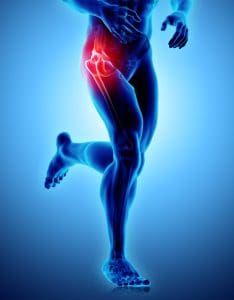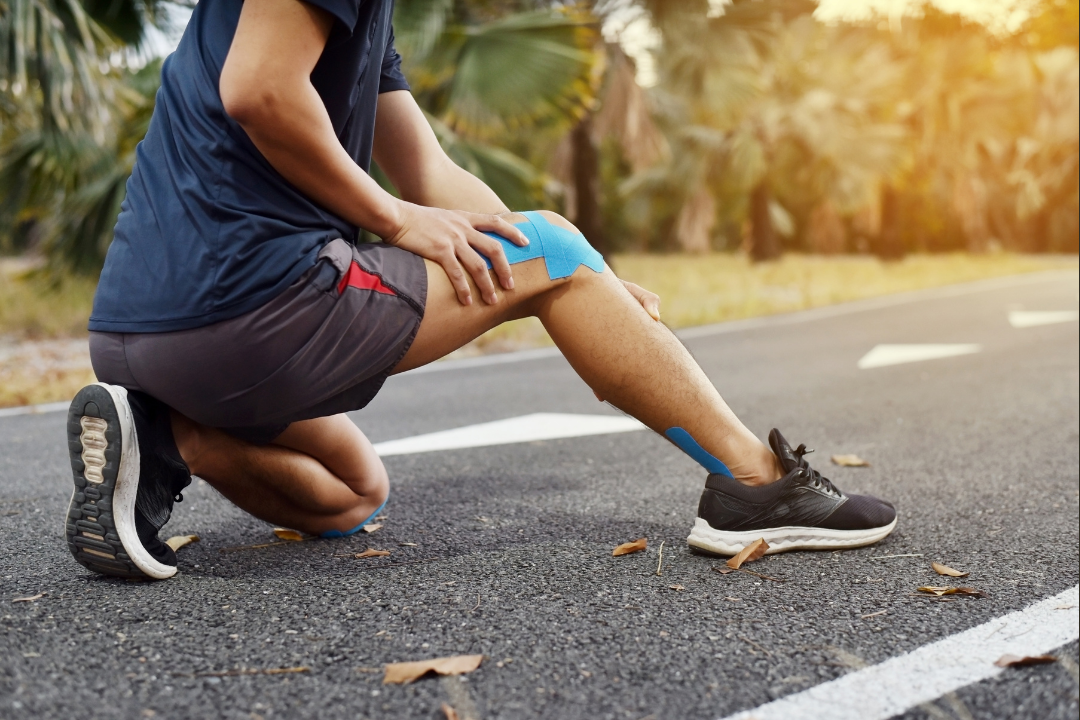 It’s important to treat hip pain immediately to avoid issues in the future. Below is a list of 10 hip pain remedies you can do to remedy the discomfort. Continue reading to learn more about relieving hip pain.
It’s important to treat hip pain immediately to avoid issues in the future. Below is a list of 10 hip pain remedies you can do to remedy the discomfort. Continue reading to learn more about relieving hip pain.
Hip pain is a problem that plagues most people at some time in their lives. There are many causes of hip pain, including joint disorders and overuse. Regardless of the reason, hip pain can be frustrating and even debilitating for some patients. Whether it is a minor annoyance or a barrier to your daily activities, it is important to treat this condition right away. Untreated hip pain can lead to physical compensation that may cause additional back or leg pain. While you should always consult your doctor to make sure a more serious underlying issue is not the problem, many remedies will decrease pain and increase your ability to live normally.
1. Exercise
It’s important to have a regular exercise routine for many reasons, and decreasing hip pain is one of them. If you are not currently in pain, exercise can help strengthen your muscles and increase your range of motion, allowing you to avoid this injury. If your hip pain is already present, you should consider modifying your exercises to ones that are less stressful on your joints. This includes walking on a flat trail or treadmill and doing yoga that does not overextend the hip joint. Another great way to exercise is to walk or perform aerobic exercises in shallow water, such as in a community or recreation center pool.
2. Over-the-Counter Pain Medicine
If you have mild to moderate hip pain, anti-inflammatory medication may help you feel better. These drugs reduce inflammation, which can decrease pain in joints and muscles. They are typically inexpensive and readily available, and many can be purchased in “PM” formulas that include a sleep aid if your hip problems keep you awake at night. However, long-term use of NSAIDs has been linked to stomach and liver problems, so be sure to consult your doctor if you plan to take them for more than a few days at a time.
3. Get Some Rest
It seems obvious, but many patients still need to be reminded to get some rest. Hip pain is a serious symptom that can be managed much more easily when you do not consistently re-aggravate the injury. Resting does not mean that you must cease all activity and stay in bed, but you should limit any activity that involves moving the injured hip in a way that will prevent the injury from healing. For example, exercise that involves the hip, such as running, should be avoided. Conversely, be sure to move frequently enough that your hip does not feel stiff or sore from inactivity.
4. Apply Ice
Most physicians recommend using an ice pack on the injured hip in 15-minute increments throughout the day. Ice can reduce inflammation and dull nerve endings, making pain less bothersome. If you do not have an ice pack, you can use any cold, malleable item to have the same effect. Many patients use frozen vegetables or similar items, although you should be careful not to defrost anything that you plan to eat in the future. Ice should be applied only when wrapped in a cloth or towel, to avoid frostbite and other skin irritations.
5. Use Compression
Compression is one of the most important steps in most overuse injuries. After icing the injury, wrap your hip and pelvic area in a compression bandage. You can also use an ace bandage or any other sports wrap. Compression can help damaged muscles recover faster by increasing circulation. In many cases, seeing and feeling the bandage can also remind you of the injury, which forces you to remember to rest and care for your hip. Compression is typically used for acute pain caused by injury, but your doctor can tell you if hip pain related to arthritis may also benefit from this technique.
6. Elevate the Injury
It isn’t easy to elevate your hip at home, but using a recliner can help. This allows blood to flow more easily between your hip and you heart and can reduce swelling. If you are unable to elevate the injury, you can take pressure off of your hip by laying on the opposite side of your body. This can prevent you from aggravating the injury while sleeping. In general, be aware of your posture and avoid positions that may stress the joint. Whenever possible, elevate your leg as much as you can.
7. Apply Heat
If you have joint pain caused by arthritis, heat will help to reduce hip pain. It will feel therapeutic to take hot baths and showers, so take advantage of this inexpensive and easy remedy. If your hip pain is too severe to stand or sit in the bathtub, and you have chronic joint issues, you should consider installing a shower bench or chair. Heating pads and similar treatments can also help with joint pain caused by arthritis or injury. Some causes, however, may be irritated by heat. Consequently, you should speak with your doctor before using this remedy.
8. Do Stretches
There are many stretches that can be used to treat hip pain. A physical therapist can help you to determine which stretches are the best for your specific type of pain. The most common use gentle motions to stretch your hip muscles without aggravating the joint, and typically involve kneeling or crouching. If you are unable to participate in these stretches due to other health issues, your doctor can recommend something easier on your knees and legs. Stretches are best for those with hip pain caused by bursitis or those who are recovering from an injury.
9. Lose Weight
One of the most common causes of hip pain is being overweight. If your hip pain is not caused by an injury or other issues, it may be helpful to lose weight. A diet and exercise plan can help you with this remedy. Eat foods that are healthy, like vegetables and lean meat, and avoid processed sugars and carbohydrates. Even if you cannot work out due to your pain, you should do light aerobic activities, water exercises, or walk several times each week. Drinking more water and less sugary drinks can also help you to shed pounds and decrease pain levels.
10. Surgery
Most patients with hip pain will never need surgery, but this is a final option for those who have tried more conservative options and found no relief. In most cases, hip pain will be present for years before repair or replacement surgery is necessary. This is more common in cases where arthritis is present, and degeneration has occurred. Surgeons can also remove bone spurs, which are often very painful and difficult to treat without surgery. Your doctor can help you to determine whether surgery is necessary, but since it is very invasive and typically requires a lengthy recovery period, other treatment options should be exhausted before you go down this path
Original article can be found on facty.com
If you have tried conservative treatment, but your hip continues to be painful, call the Center for Spine and Orthopedics at 303-287-2800 for an appointment with Dr. Oscar Noel








